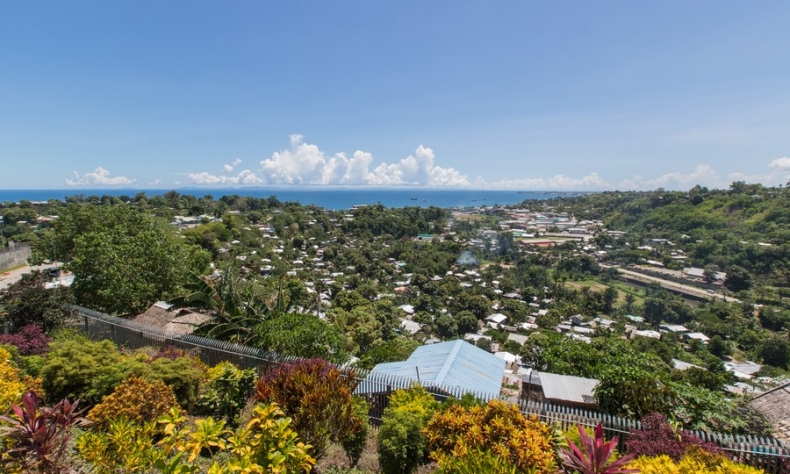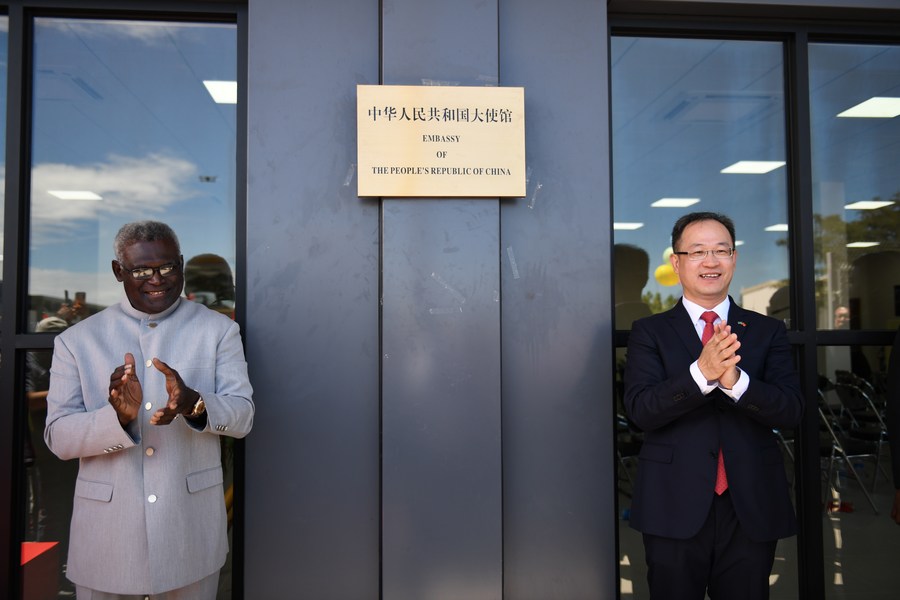Leave Sovereignty Be, Please

The future of the Solomon Islands should be determined by their population. The U.S. should remember the Solomon Islands are not part of its backyard, but are an independent, sovereign state.
China and the Solomon Islands signed a draft version of a security pact on March 30, and soon after, the United States sent an official delegation to the island country in a show of political grandstanding. The American delegation went on to warn the latter’s government that if China manages to establish a permanent military presence or force projection capacity, the U.S. will respond accordingly.
Will China establish armed bases in the Solomon Islands? Based on the information at hand: No. That’s why the U.S. side used “if,” meaning to warn the island state against any such prospects.
Offended by the condescending remarks, the Solomon Star, an English island daily, complained in an article on April 23 that U.S. officials had paid their first visit to the islands in 80 years only to try and force Prime Minister Manasseh Sogavare into submission and abandon the security pact with China.
Yet the island state is happy with its China concord. Sogavare praised the pact as being in the maximum interest of the Solomon Islands, helping promote development and restoring business and investor confidence.

This security pact was signed in the wake of serious unrest rocking the islands in November 2021. The capital of Honiara was wracked by violence that left three people dead and the city’s Chinatown in ashes.
Australia is one of the country’s security partners, but when riots erupted in the capital and government departments were stormed by angry mobs, the Australian defensive and police forces failed to prevent crowds from vandalizing Chinese businesses there.
The security pact is designed to intensify mutual aid between China and the Solomon Islands in the areas of disaster relief assistance, development backing, and the sustaining of social order, which will support local stability and benefit countries across the region.
The pact does not bear any military intentions, Sogavare explained in no uncertain terms. But the standard cooperation between two sovereign countries, however, is now distorted as a threat to local stability and security. The construction of “Chinese military bases” on the Solomon Islands, for example, is nothing but a rumor.
It’s difficult to understand how China’s security cooperation with the Solomon Islands jeopardizes U.S. security. Is it that island countries in the Pacific are only allowed to have security cooperation with the U.S. and a handful of its allies? Does the U.S. consider these islands to be independent sovereign countries or mere American affiliates?
China and the Solomon Islands saw their diplomatic relations at the ambassador level established only in September 2019. Since then, their bilateral cooperation has greatly enhanced local stability and development in the island country. Moreover, the Chinese Government has sent batches of materials to the country to help with its battle against COVID-19 since the pandemic outbreak.
American interference with the new security pact and its menacing tone toward the island state constitute a provocation of and trampling on the very concept of sovereignty.
China holds a vision of security as being common, comprehensive, cooperative and sustainable. As two sovereign states, security cooperation between China and the Solomon Islands conforms to the common interests of all Pacific island countries.
The cooperation is fair and square, with no geopolitical reckoning or offending of sovereignty. The future of the Solomon Islands should be determined by their population. Both parties in the pact hope tragedies like the 2021 unrest won’t flare up again and rumors will not sway public opinion. The U.S. should remember the Solomon Islands are not part of its backyard, but are an independent, sovereign state.
 Facebook
Facebook
 Twitter
Twitter
 Linkedin
Linkedin
 Google +
Google +










